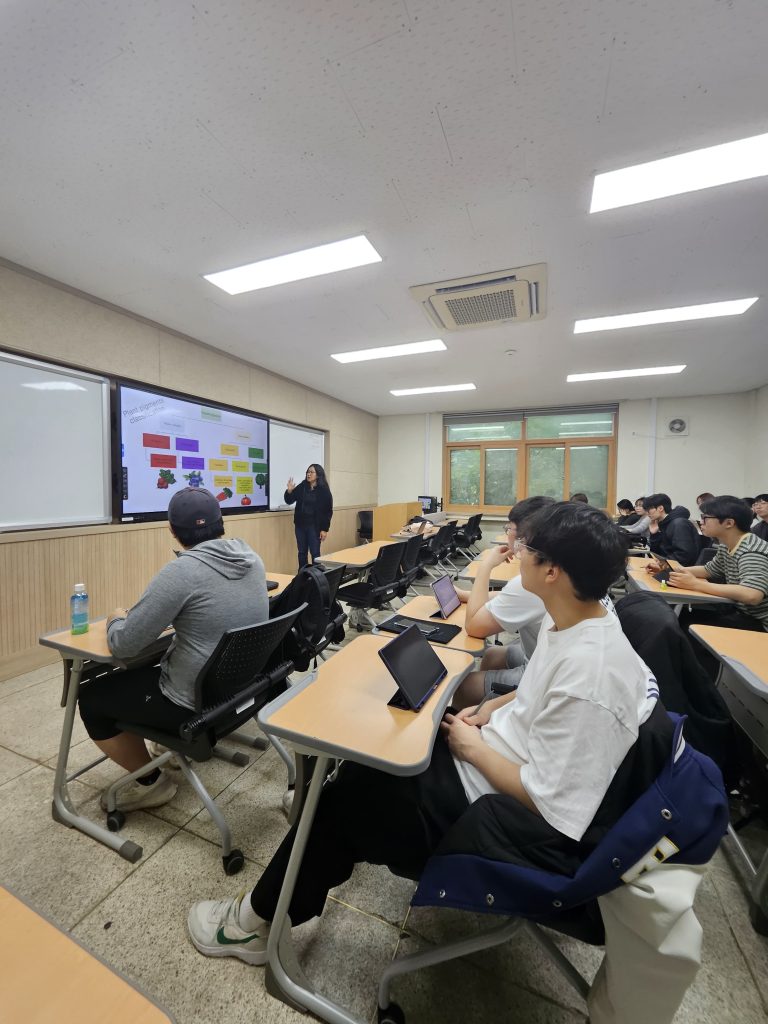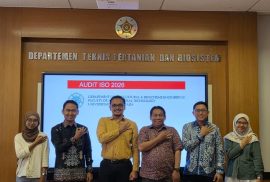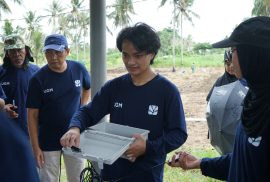
Cheongju, South Korea, October 14, 2025 —Dr. Rudiati Evi Masithoh, lecturer at the Department of Agricultural and Biosystems Engineering, Faculty of Agricultural Technology, Universitas Gadjah Mada (DTPB FTP UGM), had the opportunity to serve as a guest lecturer at Chungbuk National University (CBNU), South Korea. This activity was part of a series of collaborative research initiatives on Hyperspectral Imaging Spectroscopy, conducted at the Department of Biosystems Engineering, College of Agriculture, Life & Environment Sciences, Chungbuk National University.
In her lecture titled “Nondestructive Quantification of Betalains in Red Beet (Beta vulgaris) Using Visible–Near Infrared (Vis–NIR), Near Infrared (NIR) Spectroscopy, and Hyperspectral Imaging (HSI)”, Dr. Evi presented her research findings on nondestructive quantification methods for betalain compounds in red beet roots.

The Visible–Near Infrared (Vis–NIR) and Near Infrared (NIR) spectroscopy techniques enable the analysis of chemical components in food materials by utilizing light interactions in the visible to near-infrared wavelength range without damaging the samples. Meanwhile, Hyperspectral Imaging (HSI) combines spectral and spatial data to produce multidimensional images that can be used to evaluate quality, detect bioactive compounds, and assess food safety with precision and efficiency.
This activity not only served as a platform for scientific knowledge and experience exchange but also strengthened academic collaboration between DTPB FTP UGM and Chungbuk National University, particularly with Assoc. Prof. Hoonsoo Lee, Ph.D., an expert in biosystems engineering and spectral imaging technology. The collaboration is expected to serve as a strategic step toward developing joint research in precision agriculture, nondestructive sensing, and bioresource-based food technologies.
The guest lecture was attended by graduate students, faculty members, and interdisciplinary researchers who actively engaged in discussions on the utilization of spectral technology to enhance global food security.
This initiative also supports the achievement of several Sustainable Development Goals (SDGs), including:
-
SDG 2 (Zero Hunger): through the development of technologies that improve food security and resilience;
-
SDG 4 (Quality Education): by organizing international guest lectures to enhance learning quality;
-
SDG 5 (Gender Equality): by promoting the active role of women researchers in global academic collaboration;
-
SDG 9 (Industry, Innovation, and Infrastructure): through the application of technological innovations in biosystems engineering; and
-
SDG 12 (Responsible Consumption and Production): by utilizing efficient and environmentally friendly analytical methods.
Through this activity, DTPB FTP UGM aims to continue expanding its international research network and strengthening Indonesia’s academic contribution to the development of innovative and sustainable agricultural and food technologies.




